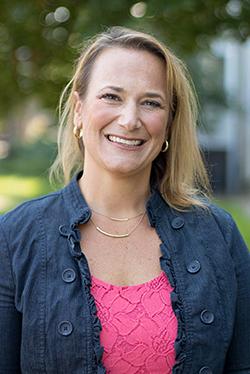Keeping Campus Healthy and Safe During COVID-19

For more than a year, health practitioners in education have been faced with the question: How can you maintain a safe and healthy college campus during a pandemic as contagious as COVID? While elementary and high schools have their own challenges, universities with residential students have an especially challenging situation.
In fall 2020, while continuing to provide care both online and in person to students on campus and in the surrounding community, we started a robust planning process with COVID leadership and key University stakeholders. With trainers in Athletics, we purposefully tested a cohort of students who wanted to use the Kuch center with rapid COVID tests on a weekly basis. As positive cases surfaced, we began to mobilize our planning around contact tracing.
Planning, testing, and contact tracing were three of the University’s largest endeavors that helped make the fall semester successful. That helped us conclude that early detection through testing and quick control of positive cases mitigates further spread.
When Arcadia decided to welcome back to campus nearly 1,000 residential and commuter students for the spring 2021 semester, we again mobilized and increased our efforts to facilitate a healthy campus community for all of our students, faculty, and staff, and especially the most vulnerable among us.
The Great Room in the Commons was transformed into a COVID surveillance testing site that operates like a machine. While other schools decided to do minimum testing, we committed to a more robust regimen of testing our students, commuters, faculty, and staff that have campus access on a weekly basis. As a practitioner, I have to applaud the University for taking on an extra financial burden to ensure the health and safety of our community.
We conduct testing in the following ways:
- Weekly surveillance testing of students, staff, and faculty. Surveillance testing helps identify asymptomatic cases of COVID, helping us to contact trace even more quickly.
- Symptomatic testing in SHS. Besides establishing a surveillance testing regimen, we continue to offer acute care in SHS. Along with rapid testing for strep, mono, or the common flu, we have added rapid testing to COVID.
- Contact tracing testing in SHS. If a student has been identified as a close contact of a person diagnosed with COVID, they can have a COVID test completed in the office.
I would like to acknowledge nurse practitioner Kristin Druien, MSN, CRNP, FNP-BC; medical assistant Amanda Holden; administrative assistant Debbie Devine, who retired in March after 20 years; and office assistant and wellness programmer Savannah Bullinger. Without this tremendous team, the amount of testing we performed along with the continued level of care we provide for the students would simply not be possible. This work reflects and pays tribute to the Florence Nightingale pledge: “I shall be loyal to my work and devoted toward the welfare of those committed to my care.”


